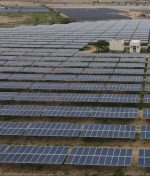
Your solar knowledgebase
Your Solar Knowledgebase!
It’s not a pre-requisite that you know all the technicalities of a solar power system but knowing the basics well can help you make the right decisions and maintain a high level of efficiency of your solar system for its lifetime. As more and more people continue to learn about clean energy and solar panels become more and more affordable – residential solar pv systems will continue to grow in popularity.
Material Requirements
When a solar panel converts solar energy into DC electricity it needs a power inverter to convert the direct current into AC power to make it ready for use in everyday appliances. Other than the solar modules and inverter – module mounting structure, wiring, distribution boxes, etc form the balance of the system.
PV Layout & System Design
Once the material is chosen, the next important step is the solar array layout and design. The panels have to be placed in a manner to avoid shading from trees or nearby construction, then the orientation and tilt of the pv modules also plays an important role to ensure the system is gaining maximum sunlight in a day.
Benefits
Once all the logistics have been identified – the final decision of the large investment has to be made keeping in mind the tax benefits associated with solar. And how the same can help reduce your overall investment costs in a span of time. Another beneficial scheme associated with solar power is net metering – you have the benefit of selling that extra energy produced back to the grid and get a reduction in your future bills.
Facts & Myths
There are several facts and myths that you may have heard around related to solar energy. It is true that solar panels may not generate as much electricity on a cloudy day as they will on a sunny day, but the system will generate a moderately reduced amount of electricity on even the cloudiest days of a year.
Certifications and Quality
Quality PV modules do not require more than an annual maintenance to ensure optimal efficiency and performance levels and most warranties last the life time of a system of 25 years on power. When choosing the modules one should look for IEC, TUV and government certifications or approvals.
Ofcourse an expert from our team will always be there to guide you further in making informed decisions for your solar needs. Have a query in your mind, simply click here and write to us.




